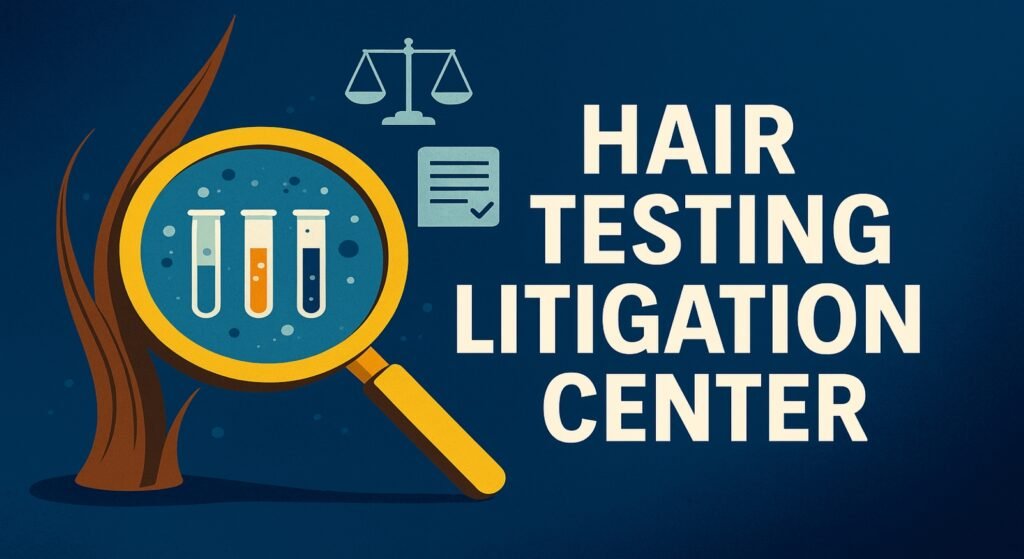Breaking the Silence: Exposing an Unlawful Testing Regime
For more than three decades, public agencies and private employers have relied on hair drug testing methods that were never approved or authorized by the U.S. Food and Drug Administration (FDA) for employment use.
What began as a vendor marketing pitch quietly became institutional policy — shaping who gets hired, who gets promoted, and whose career ends — all without public rulemaking, scientific consensus, or legal authorization.
This is not a technical oversight. It’s a systemic failure of regulation and accountability.
And it has real human consequences.
⚠️ No FDA Authorization: FDA clearance under 21 C.F.R. § 862.3870 applies only to serum, plasma, saliva, and urine — not hair.
🧪 No Substance Abuse and Mental Health Services Administration (SAMHSA) Standards: SAMHSA has repeatedly declined to adopt hair testing due to contamination risks, racial bias, and lack of standardization.
❌ No Validation: Most employers using hair tests have no technical validation studies under the Equal Employment Opportunity Commission’s Uniform Guidelines on Employee Selection Procedures (UGESP).
⚖️ Documented Racial Disparities: Hair’s chemical properties bind drug metabolites more readily in melanin-rich hair, disproportionately impacting Black and Brown individuals.
Agencies like the New York City Police Department (NYPD) have built entire personnel systems around these tests — embedding science without standards deep into hiring, promotion, and disciplinary processes.
This Hair Testing Litigation Center is dedicated to exposing and dismantling that regime.
📜 Our Mission
To challenge and end the use of unapproved, unreliable, and racially biased hair drug testing in employment through:
Strategic litigation and regulatory petitions
Civil rights and administrative law challenges
Investigative reporting and public education
Coalition-building among workers, unions, and advocates
This resource hub is designed for:
📍 Applicants and employees harmed by hair testing
⚖️ Attorneys and advocates litigating these claims
🧠 Journalists, policymakers, and watchdogs investigating systemic discrimination
🤝 Labor organizations and civil rights groups fighting for accountability
🧠 I. Investigations & Disparities
These articles expose how hair testing has disproportionately targeted Black and Brown employees, operating as a modern gatekeeping mechanism disguised as science.
Exposed: NYPD’s ‘Random’ Drug Testing Disproportionately Hits Officers of Color
Biased by Design: Why the NYPD’s Drug Testing Policies Fail the UGESP
Clearance Without Fairness: Why Judicial Endorsement Cannot Replace Scientific Validation
Presumed Guilty by a Strand: Why the NYPD and Other Employers Must Reject Hair Drug Testing
📌 These investigations reveal how “neutral” testing is anything but neutral.
🏛️ II. Regulatory Silence & Policy Failure
These pieces trace how regulatory inaction became institutional architecture, allowing unapproved tests to function like law.
📌 Silence isn’t neutral. It’s how unlawful practices take root.
⚖️ III. Legal Tools & Strategic Pathways
These guides provide practical legal strategies for applicants, employees, and attorneys to fight back.
What an FDA Citizen Petition Really Means — and Why Job Applicants and Employees Should Care
Former NYPD Officer Files Citizen Petition Urging FDA Crackdown on Unlawful Hair Testing
📌 Title VII, UGESP, administrative law, and citizen petitions give workers the power to turn silence into accountability.
🧾 IV. Legal Framework at a Glance
21 C.F.R. § 862.3870 — FDA clearance limited to serum, plasma, saliva, and urine
29 C.F.R. § 1607 (UGESP) — Employer burden to validate selection devices with adverse impact
Title VII of the Civil Rights Act of 1964 — Prohibits disparate impact discrimination
Article 78 of the New York Civil Practice Law and Rules — Judicial review of arbitrary and capricious agency action
State and Local Human Rights Laws — Broader civil rights protections at the state and municipal level
📌 These aren’t abstract legal theories — they’re enforceable pathways to challenge discriminatory practices.
🧠 V. The Architecture of Silence
Employers and agencies have long hidden behind three claims:
“The test is FDA approved.”
“Everyone uses it.”
“It’s reliable.”
All three are false.
There is no FDA approval for hair testing.
Longevity ≠ legality.
“Reliability” without scientific validation is a marketing slogan, not a legal defense.
This is not science — it’s power operating in silence.
And silence can be broken.
🛡️ VI. Taking Action
If you’ve been denied employment, disciplined, or harmed by hair drug testing, you may have viable claims under:
Title VII of the Civil Rights Act
Due process and administrative law (e.g., Article 78 in New York)
UGESP validation requirements
State and local human rights laws
Collective bargaining agreements
Negligence and misrepresentation claims against vendors and employers
📩 Contact The Sanders Firm, P.C. for a confidential consultation to discuss your legal options.
✊ VII. A Civil Rights Reckoning
This isn’t just about one test.
It’s about how regulatory silence became institutional power — and how that power is being challenged and dismantled.
Through coordinated litigation, regulatory petitions, and public advocacy, we are building a record that:
Exposes the misuse of unapproved testing methods
Holds agencies and employers accountable
Protects workers’ rights and livelihoods nationwide
This is where the fight for accountability begins.
